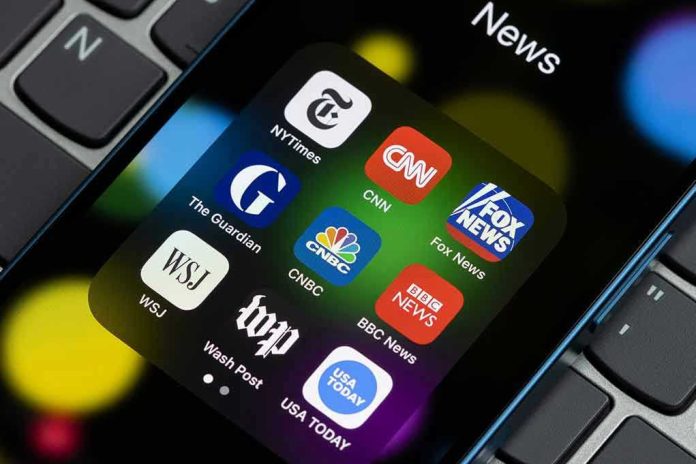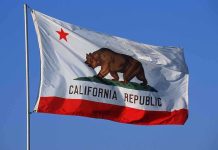
The BBC’s apology to Donald Trump over a misleading documentary edit was a media earthquake—but their refusal to pay $1 billion for “defamation” reveals a deeper battle over who controls the truth in a polarized world.
Story Snapshot
- The BBC admitted fault and apologized to Trump for misrepresenting his words in a Panorama episode.
- Trump demanded a staggering $1 billion in compensation, which the BBC flatly refused.
- Senior BBC executives resigned, signaling internal turmoil and crisis management in action.
- The standoff exposes bigger questions about media ethics, legal boundaries, and institutional accountability in the digital era.
BBC’s Panorama: The Catalyst for a Cross-Atlantic Showdown
In October 2024, the BBC’s flagship Panorama program aired an episode that would ignite international controversy. By splicing together segments of Donald Trump’s speech on January 6, 2021, producers crafted a narrative that appeared to show the president explicitly inciting violence at the U.S. Capitol. Allies of Trump, media analysts, and legal experts swiftly identified the edit as misleading, accusing the BBC of distorting the record for dramatic effect and political advantage.
Trump’s legal team responded with characteristic force. In early November 2025, they sent an ultimatum: issue a public apology, retract the program, and pay $1 billion in compensation—or face a lawsuit of historic proportions. This demand was as much a shot across the bow of the global media establishment as it was a quest for personal vindication. Within days, the BBC issued a rare and formal apology, withdrew the offending episode from all platforms, and BBC Chair Samir Shah sent a personal letter of regret to the White House. Yet, when it came to Trump’s demand for compensation, the BBC drew a red line—declaring there was “no basis for a defamation claim.”
Leadership Fallout and Institutional Reckoning at the BBC
The fallout inside the BBC was immediate and dramatic. Tim Davie, the Director General, and Deborah Turness, Head of News, both resigned. Their departures signaled the gravity of the editorial lapse and the pressure facing the BBC’s top brass. For an institution that has prided itself on editorial rigor and public trust, the incident cut deep—raising uncomfortable questions about oversight, journalistic ethics, and the perils of editorial shortcuts in a hyper-politicized climate.
Crisis management shifted from damage control to a full-blown leadership shakeup. Internal reviews began, and the BBC’s Board faced scrutiny from regulators, lawmakers, and the public. For Trump, the resignations were presented as evidence of wrongdoing; for the BBC, they were positioned as accountability in action. The question remained: would this be a one-off embarrassment, or a catalyst for deeper reform?
Legal Gambits and the Boundaries of Defamation
Trump’s $1 billion compensation demand turned the controversy into a global legal drama. Legal experts on both sides of the Atlantic weighed in, noting the high bar for public figures to prove defamation—especially in the U.S., where the “actual malice” standard prevails. The BBC’s swift apology and program withdrawal complicated Trump’s case, even as his legal team hinted at further action. The broadcaster’s public statement—regret for the edit, but rejection of legal liability—set the stage for a potential courtroom battle with international repercussions.
This standoff is more than a personal dispute. It’s a test case for the boundaries of journalistic responsibility, legal recourse, and the power dynamics between media giants and political figures. The scale of Trump’s compensation demand, and the BBC’s refusal, underscores the stakes: control over narrative, reputation, and accountability in an era of deep mistrust and partisan fracture.
Media Ethics, Public Trust, and the Fight for Credibility
The BBC’s apology to Trump is a rare event, echoing through newsrooms and boardrooms worldwide. The incident spotlights the risks of editorial shortcuts, especially when reporting on figures as polarizing as Trump. For many, the controversy is a cautionary tale: accuracy and transparency are non-negotiable, especially for publicly funded institutions. The resignations of top BBC executives suggest that leadership recognizes the gravity of the breach, but they also raise questions about systemic pressures and the challenges of maintaining impartiality in a digital, hyper-partisan age.
For Trump’s supporters, the episode validates long-standing claims of media bias. For the BBC and its defenders, the apology and internal shakeup are seen as appropriate remedies. Yet, the broader implications ripple far beyond individual reputations. The incident has already sparked debate about potential regulatory changes, new editorial safeguards, and the future of trust in journalism. As legal threats loom and the public scrutinizes every move, the battle lines are drawn—not just over a billion dollars, but over the very nature of truth in the information age.






